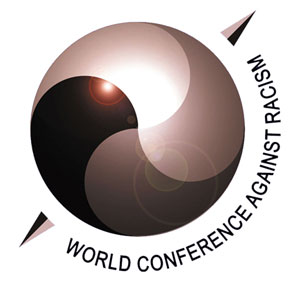
NEW YORK (FinalCall.com) – Unhappy with the Obama administration’s decision not to attend an April meeting of the Durban Review Conference, which is connected to an international race gathering, activists plan to hold a Harlem rally to protest the action and urge the U.S. to participate in the important meeting.
“We want to get the message to President Barack Obama and his administration that we are demanding U.S. participation in Durban II,” Roger Wareham, of The December 12th Movement, told The Final Call. The rally and a press conference are set for March 21 in front of the Adam Clayton Powell Jr. State Office Building. The four-day Durban Review Conference begins April 20 in Geneva, Switzerland, and is an outgrowth of the 2001 World Conference Against Racism, which was boycotted by the Bush administration. Controversy arose over demands for reparations for Blacks and anti-Zionist positions that offended Israel at the 2001 meeting in Durban, South Africa. The review conference, dubbed “Durban II,” will evaluate progress toward goals to eliminate racism set in 2001. Significant United Nations conferences are often accompanied by parallel conferences with advocacy groups and government officials.
The Obama administration announced Feb. 27, through a State Department spokesman, that no delegation would be going to Geneva. The spokesperson said a report back from State Department envoys said the conference’s draft document “had gone from bad to worse.” The administration believes the draft document is “unsalvageable” because of language that demonizes Israel, reconstructs free speech rights and highlights a call for reparations for slavery, the spokesperson added.
President Obama, in a break with his predecessor, had sent a delegation to a preparatory meeting for the review conference on Feb. 19. UN Secretary-General Ban Ki Moon and human rights groups such as Human Rights Watch welcomed the decision. “The U.S. cannot provide the leadership necessary to promote and protect human rights by sitting on the sidelines,” said Kenneth Roth, Human Rights Watch executive director, at the time. Dr. Susan Rice, the U.S. ambassador to the United Nations, told reporters Feb. 19 it was “critical to show the world that we are willing to engage in a global platform to denounce the remnants of slavery and colonialism.”
Days later, the administration’s position shifted to an emphatic rejection of the conference. The State Department spokesman left a window open, saying the U.S. “would be prepared to re-engage” if deliberations were based on a text that met various criteria–including not singling out “any one country or conflict.”
As of March 2, President Obama was reassuring Jewish groups that the administration was still holding fast to its plan not to attend Durban II. The right wing Heritage Foundation March 4 said the president’s decision not to participate was a “welcomed recognition of the limitations of multilateral engagement.”
Lawmakers representing the Congressional Task Force on Anti-Semitism applauded the decision as did the chairman of the House Foreign Affairs Committee who predicted the administration’s announcement would push nations sitting on the fence not to attend.
On March 12, the Italian foreign minister announced his nation would not be attending. A week before the Dutch foreign ministry withdrew, saying “the document is unacceptable.” IRIN News reported March 2 that Australia was still uncommitted on whether it would boycott, while the 27-member European Union was attempting to get all of its members not to attend.
“One-hundred and sixty nations participated in the 2001 WCAR, and they approved an outcome document declaring the trans-Atlantic slave trade and colonialism as crimes against humanity,” said Dr. Conrad Worrill, chairman of the National United Black Front, and a reparations advocate.
“Also included in the Program of Action was the resolution that the remedy for the repair of these acts was reparations. And if President Obama is not sending a delegation, he is out of step with the world and the United Nations; and he will suffer the consequences of a political embarrassment because of the backwardness of his action,” Dr. Worrill added.
Cynthia McKinney, former Green Party presidential candidate, participated in the 2001 conference as the head of the Congressional Black Caucus task force for the World Conference Against Racism. She explained to a radio audience listening to WPFW-FM’s Jazz & Justice Show March 9 that she also felt the administration was out of step on Durban II.
This “certainly calls for self-mobilization of the African American community to get the president’s attention and to let him know that the U.S. must attend this review conference,” she said.
Ms. McKinney insisted that the Congressional Black Caucus must send a delegation despite what the president decides. The “issues of racism here must be placed into the international arena once again,” she argued.
Joni Palmer, CBC communications director, told The Final Call the caucus is in discussion with the White House. “We remain optimistic there could be a change in the administration’s position,” he said. “The CBC remains committed as it was eight years ago to have a delegation attend Durban II.”
Navi Pillay, the top UN official for human rights, in a recent communiquè from Geneva stressed the need for UN member states to put aside differences, “uphold the consensually agreed upon objectives” of the Durban review conference and remember the meeting’s importance to millions of victims of racism worldwide.
Related links:
- West attempts to derail anti-racism conference (FCN, 09-23-2008)
- A grassroots victory in Durban (FCN, 09-21-2001)
- U.S. walks out on Racism Conference (FCN, 09-06-2001)












